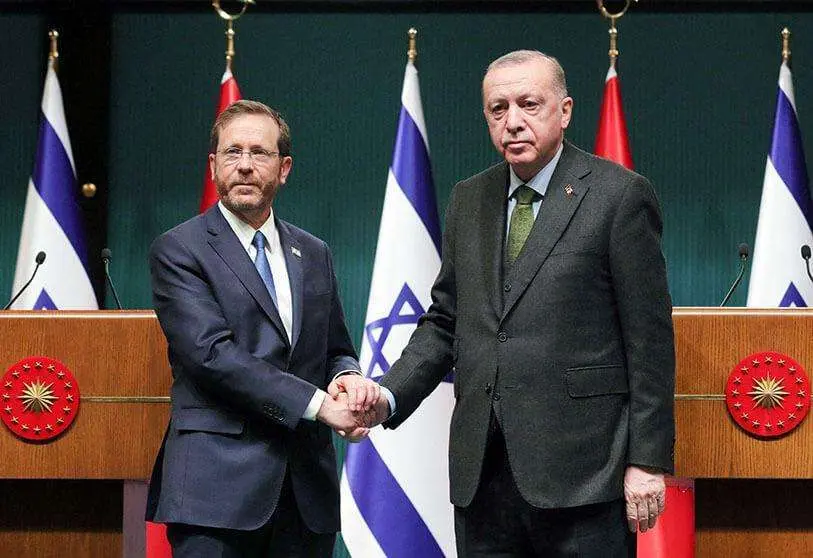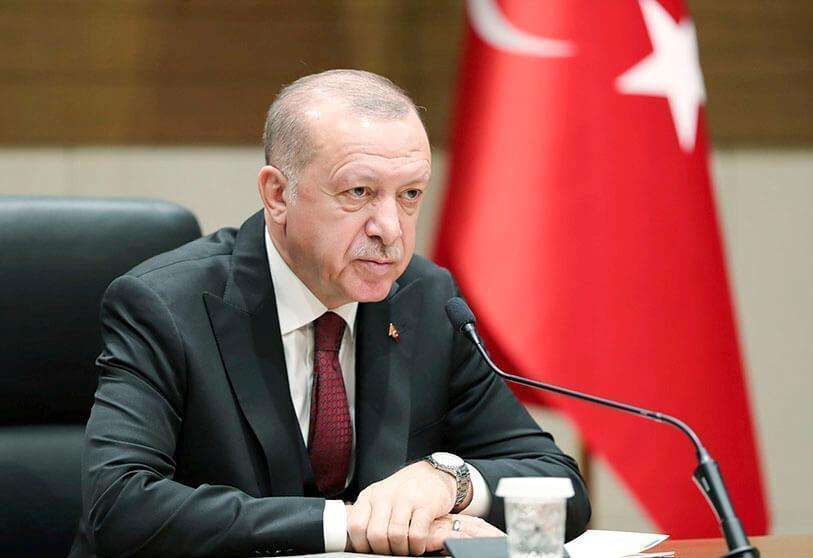Turkey bets on gas pipeline from Israel amid energy crisis

Recep Tayyip Erdoğan indicated last Monday in an interview to the local media Yeni Şafak that Tel Aviv and Ankara would soon start negotiations regarding the shipment of Israeli natural gas to Europe via Turkey. The Turkish president also stressed that positive signals had already been received from Tel Aviv. "There will be meetings between our Ministry of Energy and Natural Resources and Israeli officials in this regard. At the moment, the outlook on the issue is positive," Erdoğan announced.
These statements come in a context of rapprochement between Ankara and Tel Aviv, after a decade of strong bilateral tensions over the Palestinian issue, with Erdoğan positioning himself as the great defender of Palestinian rights. But recently, Ankara has reportedly taken a more moderate stance, limiting its criticism even in the face of recent clashes between Palestinians and Israeli forces in al-Aqsa.

In March, Israeli President Isaac Herzog travelled to Turkey, the first Israeli head of state to do so in more than a decade. A few weeks later, Turkey's Foreign Minister Mevlüt Çavusoglu followed suit, the first senior Turkish official to visit Turkey in 15 years. At the time, Israeli Foreign Minister Yair Lapid described the meeting as the beginning of the opening of 'a new chapter' in the bilateral relationship. In March, Erdoğan also indicated the possibility of an upcoming visit by Naftali Bennet, the Israeli prime minister, which could complete this turnaround.
Turkey is a major regional energy hub, bringing gas to Europe from Azerbaijan, Russia and Iran, with plans to transport it from Iraqi Kurdistan as well, and Israeli supplies could further strengthen this role.
The possibility of building a pipeline from Israel to Turkey has been on the table since 2016. At the time, the project did not come to fruition due to mutual tensions, but the recent bilateral rapprochement and growing gas demand from an EU eager to reduce Russian gas imports have given new life to the idea.

The pipeline would start from Israel's Leviathan gas field, which currently produces around 12 billion cubic metres (bcm) annually, an amount that the operating companies (US-based Chevron and Israel's NewMed Energy and Ratio Oil) plan to increase to 21 bcm. After reaching Turkey, the Israeli supply could be transported to Europe via the Southern Gas Corridor, a series of pipelines transporting natural gas from the South Caucasus to the Balkans. According to Erdoğan, the project was discussed with Herzog, and Ankara has reportedly received positive signals.
According to David Pollock, Middle East expert at The Washington Institute, 'Israel is keen to accumulate as many regional partners as it can and welcomes conflict resolution with its main rivals'. Thus, Pollock continues, "Israel is responding cautiously but favourably to Ankara's latest proposals for maritime and energy coordination, while maintaining close ties with Greece, Cyprus and Egypt (as well as the United Arab Emirates)".
The Eastern Mediterranean possesses substantial gas resources that could make it an ideal source for reducing European imports of Russian gas, which account for up to 40% of the total. But the transport infrastructure is not yet sufficiently developed, and the region has been the scene of high tensions between Turkey and its neighbours over the issue of maritime delimitation.
Earlier, Israel, Cyprus and Greece agreed on the construction of the EastMed gas pipeline to Europe, which Turkey strongly opposes because it crosses what it considers to be its Exclusive Economic Zone and does not involve Turkey's participation.
There are many doubts regarding the economic and technological viability of EastMed, and in January the Biden administration withdrew US support for the project, previously given by the Trump administration.

This has been interpreted by Erdoğan as implicit support, emphasising that gas from the region can only reach Europe through his territory. Meanwhile, Turkey has taken the opportunity to sound out the possibility of an alternative project of its own, with which to get a piece of the eastern Mediterranean pie.
However, a gas pipeline from Israel to Turkey would necessarily have to pass through either Syrian or Cypriot waters. The former is unfeasible, given the enmity between Damascus and Tel Aviv and the rupture of Turkish-Syrian relations after the outbreak of the civil war in the Arab country. The second possibility is similarly highly problematic due to poor Turkish-Cypriot relations.
Turkey does not recognise Cyprus, an EU member state, but the Turkish Republic of Northern Cyprus, a state without international recognition beyond Turkey. Moreover, Ankara and Nicosia have clashed sharply over gas resources around the island, and Turkey has repeatedly deployed exploration vessels and its fleet to Cypriot waters.

While tensions in the eastern Mediterranean have eased in recent months, it seems unlikely that Nicosia would be willing to approve a project that would benefit Turkey and reduce its own gas export possibilities to Europe, while Tel Aviv is also unlikely to give up its good relations with Cyprus and Greece (the island's main ally) on the basis of a project with a dubious future.
"The Turkish-Israeli pipeline is not politically feasible unless a solution to the Cyprus problem can be found," Alan Makovsky, an expert at the Center for American Progress, told the US Congress. "Israel has said it will not do anything to undermine its ties with Greece or Cyprus in its revived relations with Turkey, and attempting to build a gas pipeline to Turkey through the Cyprus EEZ would certainly have that effect," the US political scientist concluded.
Moreover, there are doubts about the feasibility of building new gas energy infrastructure to Europe given the EU's goals of reducing its gas consumption by 25% by 2030 and to zero by 2050








